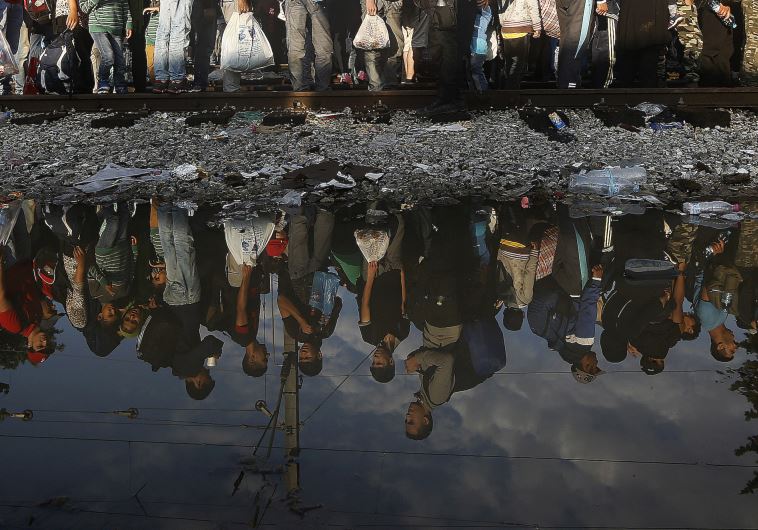South African Buzz: Migrants and/or refugees
Israel also had to face refugees crossing Sinai with the aim of reaching Israel. Visit south Tel Aviv any night and have a look.
 Syrian refugees are reflected in a puddle as they wait for their turn to enter Macedonia at Greece's border
Syrian refugees are reflected in a puddle as they wait for their turn to enter Macedonia at Greece's border